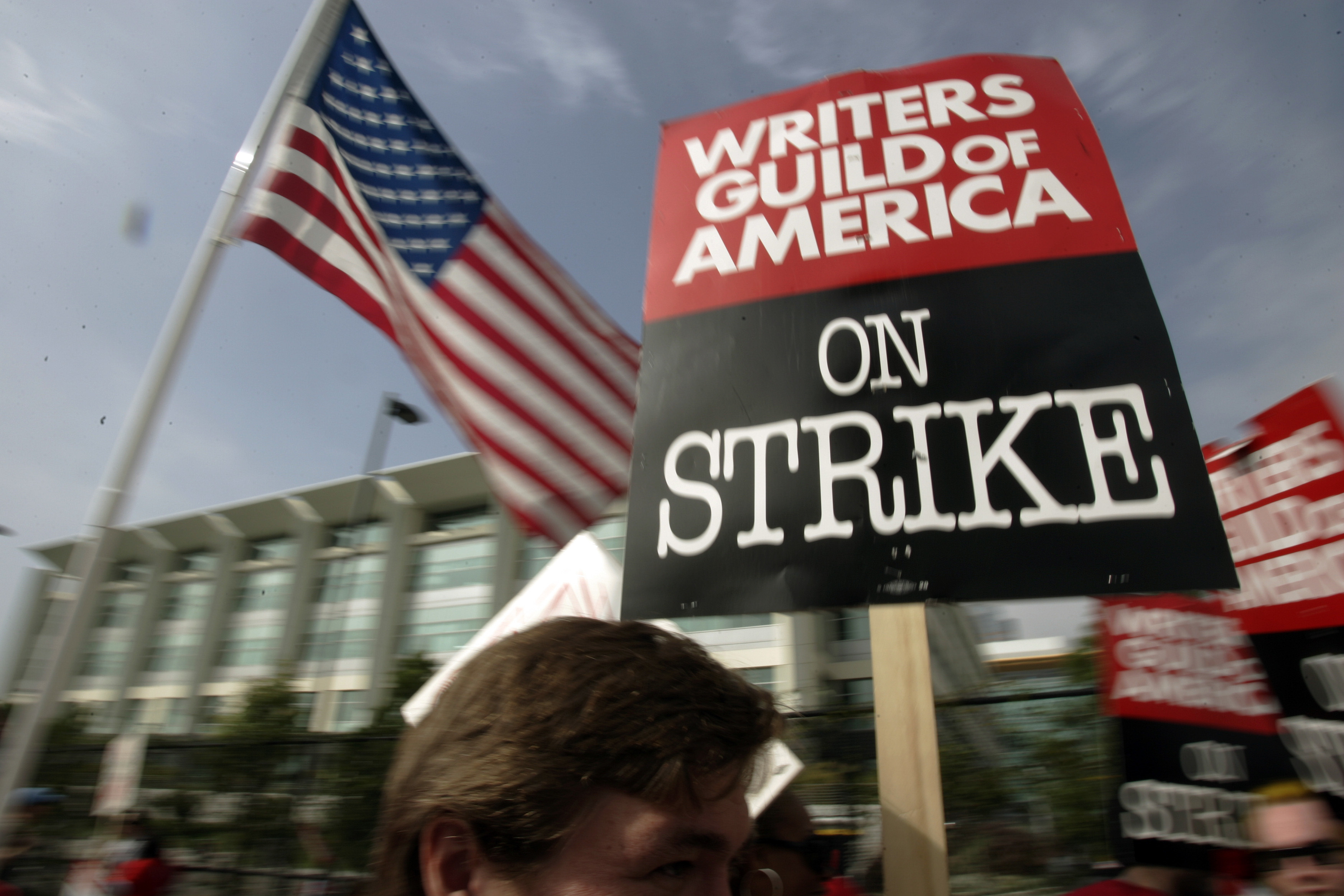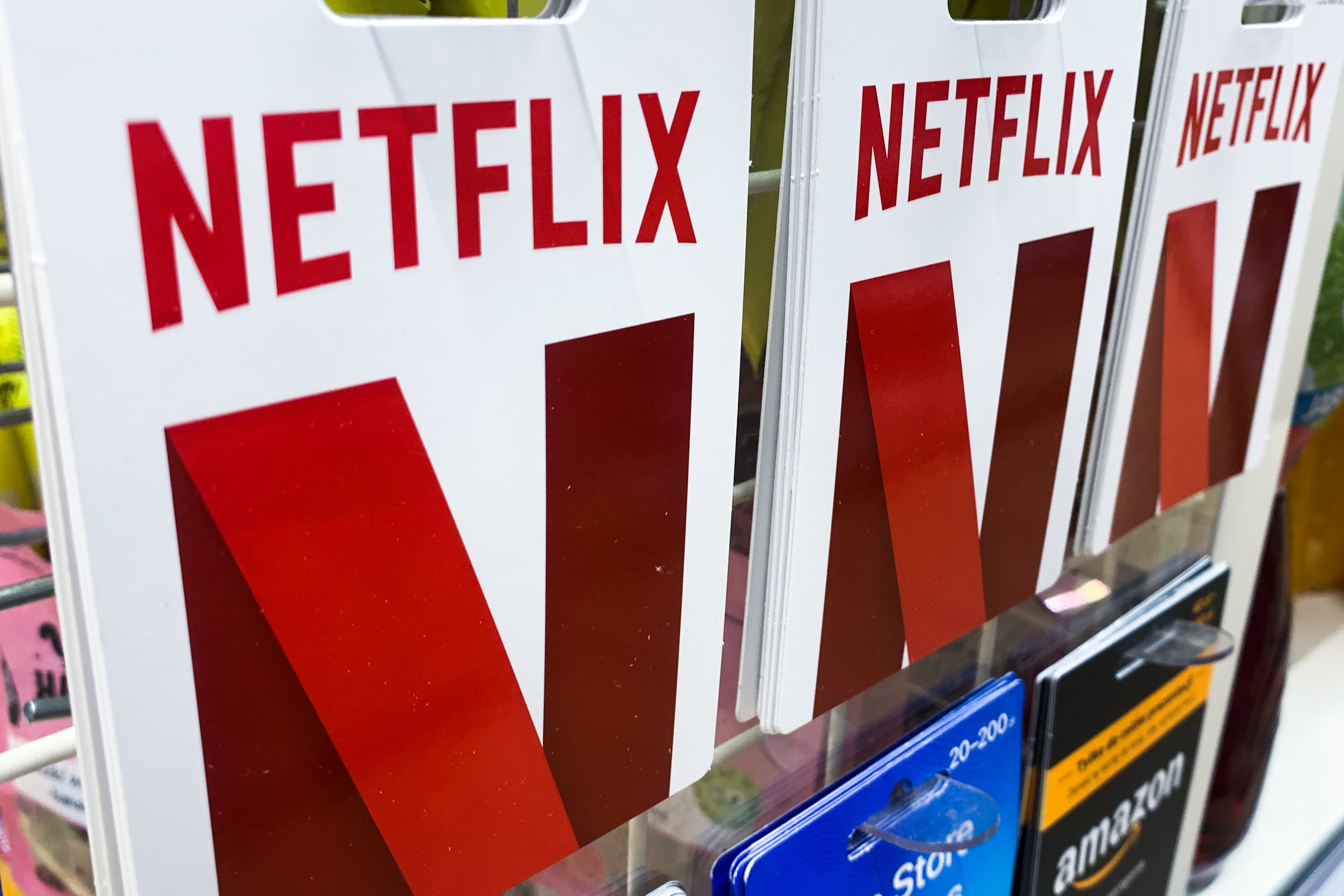Hollywood is heading for a shutdown.
The Writers Guild of America told its members Monday night that the strike would begin at 12:01 a.m. Tuesday, after last-minute talks with The Alliance of Motion Picture and Television Producers, which represents studios and streamers, failed to produce a new contract. Picketing is expected to begin Tuesday afternoon at several Los Angeles-area studios, including Amazon's studios in Culver City, CBS' Studio City lot, Television City, the Fox Studio Lot, Paramount Studios in Hollywood, Sony Studios in Culver City, Universal Studios and Warner Bros. in Burbank.
Picketing also was planned at Netflix's Hollywood headquarters and The Walt Disney Co.'s corporate headquarters in Burbank.
Get Southern California news, weather forecasts and entertainment stories to your inbox. Sign up for NBC LA newsletters.
The decision to strike was made following six weeks of negotiations with Netflix, Amazon, Apple, Disney, Warner Bros. Discovery, NBCUniversal, Paramount+ and Sony under the umbrella of the AMPTP, the WGA said in Twitter. All script writing is to immediately cease, the guild informed its members.
“The companies’ behavior has created a gig economy inside a union workforce, and their immovable stance in this negotiation has betrayed a commitment to further devaluing the profession of writing,” the WGA said in a statement. “From their refusal to guarantee any level of weekly employment in episodic television, to the creation of a ‘day rate’ in comedy variety, to their stonewalling on free work for screenwriters and on AI for all writers, they have closed the door on their labor force and opened the door to writing as an entirely freelance profession. No such deal could ever be contemplated by this membership.”
“Though our Negotiating Committee began this process intent on making a fair deal, the studios’ responses have been wholly insufficient given the existential crisis writers are facing,” the WGA's West Coast branch said on Twitter.
Negotiations took place at the AMPTP headquarters in Sherman Oaks The WGA had already messaged their members telling them to prepare for a strike.
In a statement, the AMPTP said it presented the WGA with a "comprehensive" proposal that included "generous" increases in compensation for writers, as well as improvements in streaming residuals.
"The AMPTP also indicated to the WGA that it is prepared to improve that offer, but was unwilling to do so because of the magnitude of other proposals still on the table that the Guild continues to insist upon. The primary sticking points are 'mandatory staffing,” and “duration of employment' — Guild proposals that would require a company to staff a show with a certain number of writers for a specified period of time, whether needed or not," the AMPTP said.
The group added that it is willing to continue discussion with the WGA in order to "break this logjam."
Writers are demanding to be fairly compensated for their work and above all economic stability.
"These are still tremendously profitable businesses, and we want to share in them since we’re the original creators of them," said Zack Stentz, writer and producer.
Stentz, whose work includes the films "X-Men: First Class" and "Thor," says members are pushing for streaming to pay at a rate that is closer to what broadcast and cable pay to protect writers who work for the shorter streaming shows.
"Streaming by and large pays at a much lower rate than broadcast and cable reruns use to work or even films being sold to TV, so checks you use to get worth thousands of dollars are now worth hundreds of dollars and it makes it harder to earn a living," Stentz said.
Stentz has been in the WGA for 22 years and remembers the last strike in 2007 that lasted 100 days. That caused a $2.5 billion economic loss. He’s hopeful they can avoid a strike as long as the WGA members needs are met.
"A lot of these people on the other side are our friends. In some cases they are married to each other. I know writers married to executives. We all want to be in business together, we just want a deal to be made to keep making a stable living that makes movies and shows that make billion of dollars for these companies," Stentz said.
Among their demands, the WGA is asking for an increase in streaming residuals, royalties for when shows re-air and standardized compensation for all content whether in theatres or streaming platforms.
The Alliance of Motion Picture and Television Producers which represents the studios, issued a statement saying in part:
“We are all partners in charting the future of our business together and we are fully committed to reaching a mutually-beneficial deal.”
The first shows that will go dark will be late night talk shows and daytime soap operas. If this continues it could eventually delay the release of scripted shows and movies.
Comcast, the corporation that owns NBCUniversal, is one of the entertainment companies represented by the Alliance of Motion Picture and Television Producers. Some editorial employees of the NBCUniversal News Group are represented by the Writers Guild of America.
The Associated Press contributed to this story.



